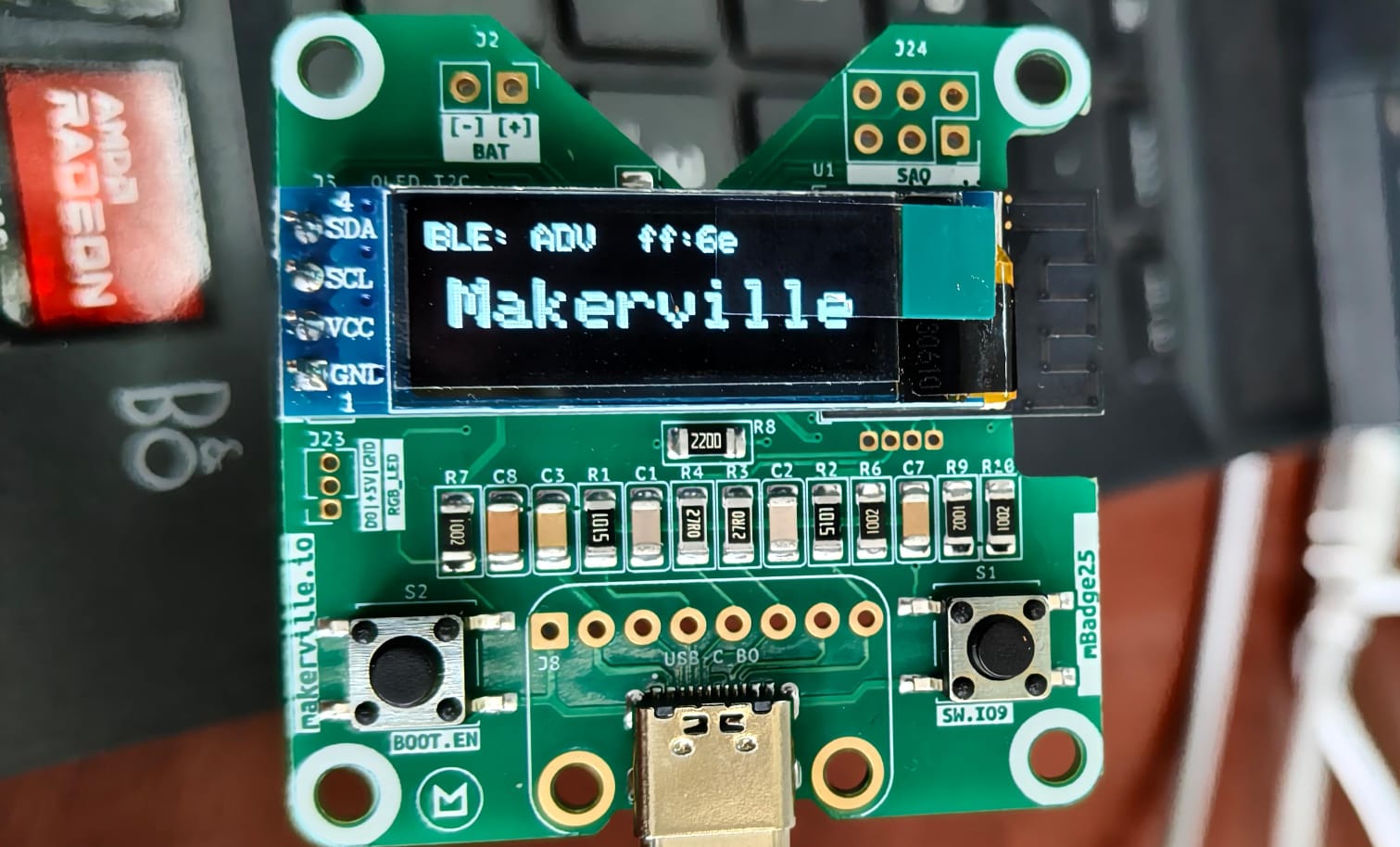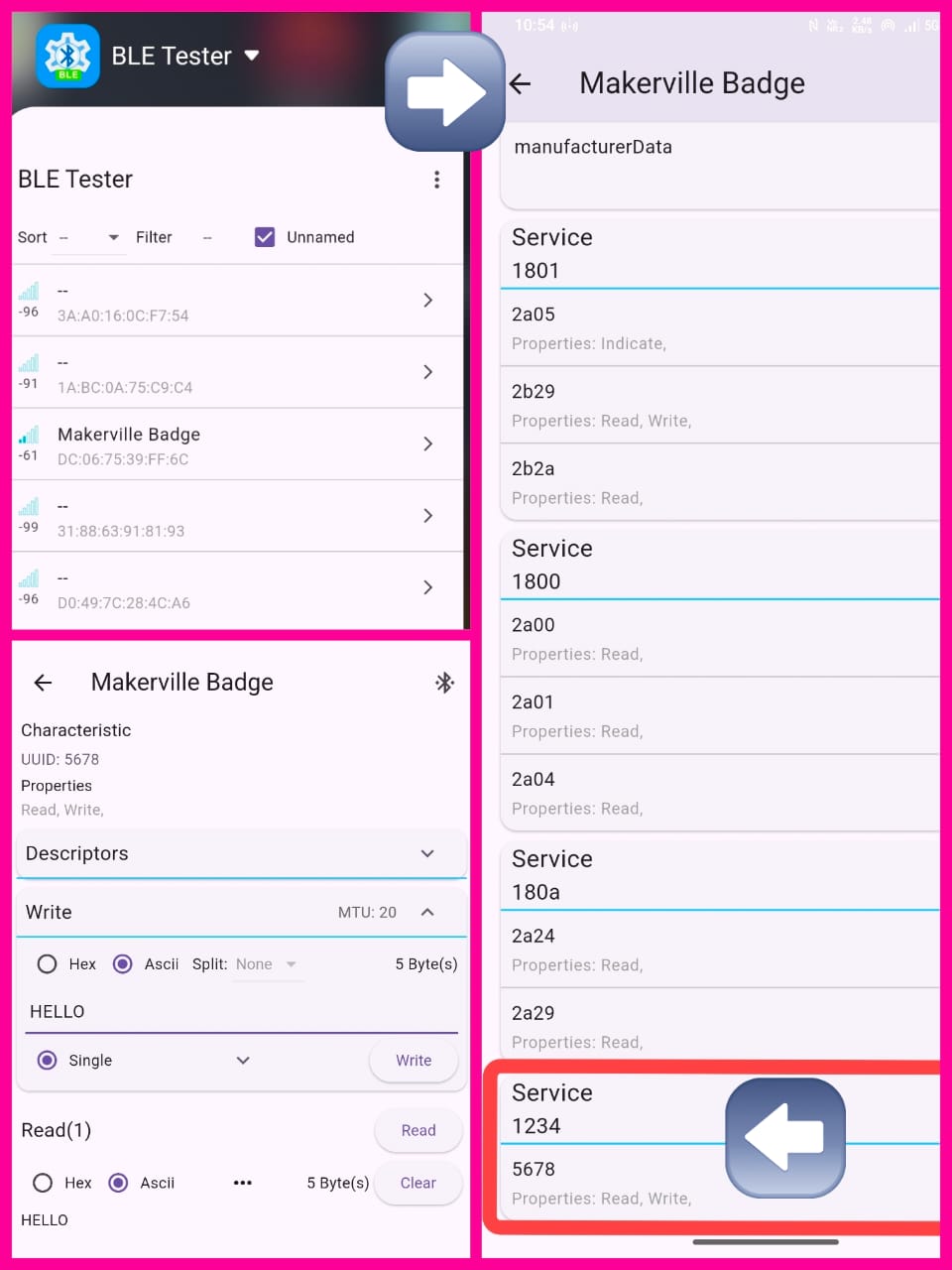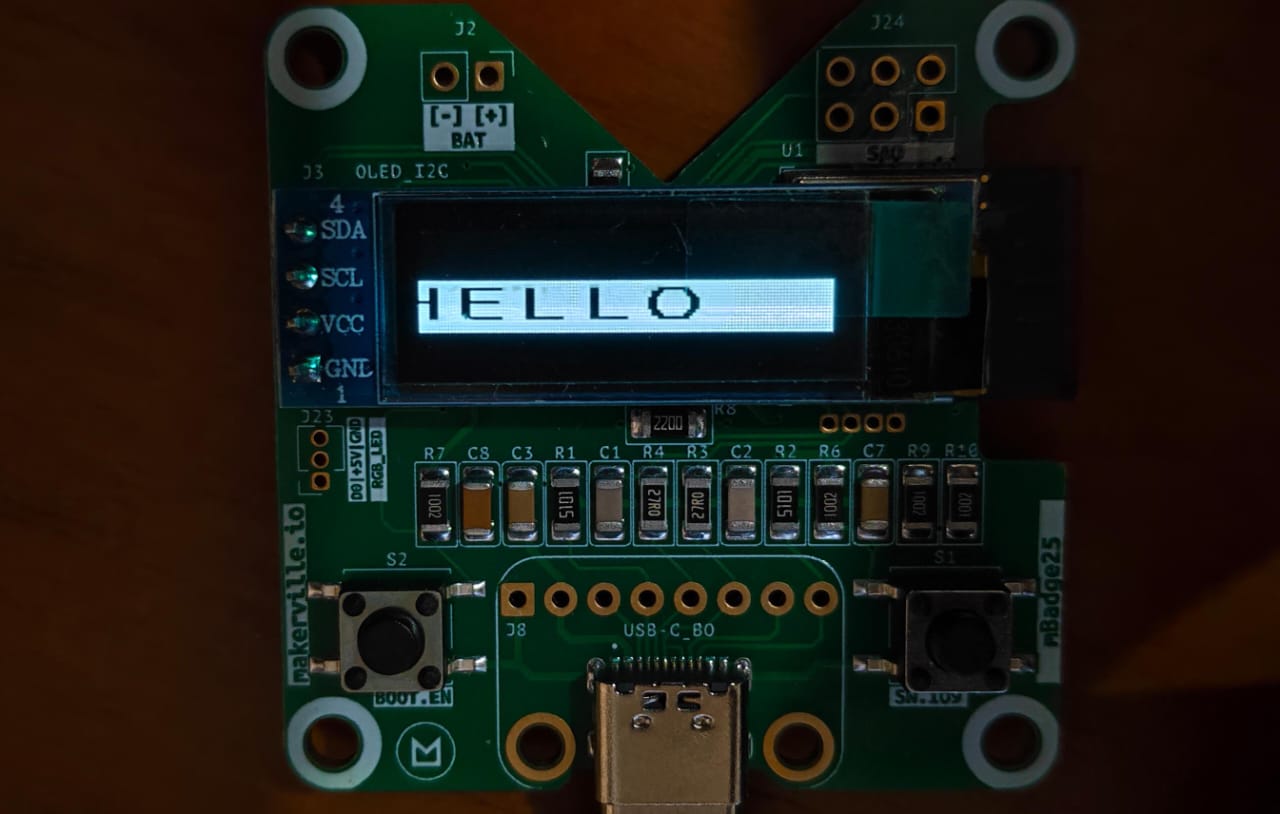The Makerville Badge
| Links:

Winging it.

Made an API endpoint to set RGB color
void handleRGB(AsyncWebServerRequest *request)
{
Serial.println("request on /rgb");
String R = request->arg("R");
String G = request->arg("G");
String B = request->arg("B");
pixel.setPixelColor(0, pixel.Color(R.toInt(), G.toInt(), B.toInt())); // Set to green
pixel.show(); // Set pixel
request->send(200, "text/plain", "OK");
}
server.on("/rgb", HTTP_GET, handleRGB);
The Makerville ESP32 Badge
Mutliplication tables
Made an API endpoint to update text

void handleSetText(AsyncWebServerRequest *request)
{
if (request->hasArg("text"))
{
String textArg = request->arg("text");
displayText = textArg;
}
request->send(200, "text/plain", "OK");
}
void scrollOn(AsyncWebServerRequest *request)
{
scrolling = true;
request->send(200, "text/plain", "OK");
}
server.on("/text", HTTP_GET, handleSetText);
server.on("/scrollOn", HTTP_GET, scrollOn);
server.on("/scrollOff", HTTP_GET, scrollOff);
Objectives
- test BLE
- Set text on the OLED with the existing firmware
- host a web server running visual programming on this, and make a wifi endpoint to set badge text.
Simple Python app to scan BLE
# ble_scanner.py
# pip install bleak
import asyncio
from bleak import BleakScanner
async def scan_ble_devices():
"""
Scans for Bluetooth Low Energy devices and prints their details.
"""
try:
devices = await BleakScanner.discover(timeout=5.0)
if not devices:
print("No BLE devices found.")
return
print(f"\nFound {len(devices)} device(s):\n")
# Iterate through and print
for i, device in enumerate(devices, 1):
print(f"--- Device {i} ---")
if hasattr(device,'address'):print(f" Address: {device.address}")
if hasattr(device,'name'):print(f" name: {device.name}")
if hasattr(device,'rssi'):print(f" rssi: {device.rssi} dBm")
if hasattr(device,'metadata'):print(f" Meta: {device.metadata}")
print("-" * 20)
except Exception as e:
print(f"An error occurred: {e} \n permissions?")
if __name__ == "__main__":
asyncio.run(scan_ble_devices())
outputs
jithin@jithin-Victus:~/Downloads/tmp/makerville$ python3 test.py
Starting BLE scan... (Press Ctrl+C to stop)
Scanning may take a few seconds.
Found 5 device(s):
~~~
--- Device 3 ---
Address: DC:06:75:39:FF:6C
name: Makerville Badge
--------------------
So the MAC is DC:06:75:39:FF:6C . Now to send data.
Can’t do that. Issues with BLE on my Ubuntu running on HP Victus. Using an Android app called BLE Tester

It Works!

